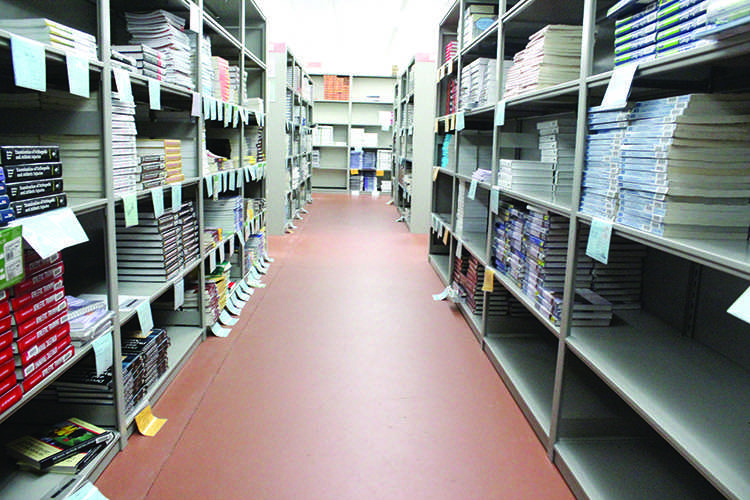Rentals aim to save students money
Approximately 44,000 textbook rentals are taken out on average during UW-Eau Claire’s fall semester alone, bookstore General Manager Joe Picconatto said. But renting books is nothing new for Eau Claire, the program here has been around in some form for as long as the university has, since 1916.
But something people affiliated with Eau Claire may not know about the program is it’s not exactly free. Students pay a segregated fee of $8.45 per credit until they reach 12 credits as part of their tuition. This money goes directly to keeping the university’s rentals possible.
“Our (segregated) fee covers the ability to rent any book no matter how much all of those rentals would cost,” Picconatto said. “Some students are renting say $1,500 worth of books for that (segregated) fee and other students are renting $250 for that (segregated) fee. It’s very democratic how we run it, everybody gets what they need.”
Picconatto said numbers are starting to vary, but traditionally it’s the nursing students who purchase the most textbooks on campus. He said it’s possible for nursing majors to have six or seven textbooks in one class so when they are only able to rent one or two of their textbooks, costs can add up.
This isn’t to say there aren’t any benefits to the program. Picconatto said keeping costs low for the most part and having everything in one place makes for a very accessible, very clean textbook process.
“I think our rental program is superior to other rental programs,” Picconatto said. “One of the advantages is it’s all in one place here. If you go to other campuses, like I believe Stout and La Crosse, you go to one location for your rental books and you go to a separate location for any other books that you need to purchase.”
Senior psychology major and bookstore employee Katie Laudenbach said she thinks there are major advantages to the university’s renting as well. She said it’s a plus when people can avoid a large payment charge because they are able to rent their books instead.
She also said she thinks paying the segregated fee is worth it in the long run. When comparing the cost for the rental program to just buying these textbooks outright, Laudenbach said it’s clearly a better deal than purchasing.
“I think that’s totally fair because, I know that it does say it’s free, but when you think about it, $8.45 isn’t that expensive per credit compared to buying a $300 book that you can’t ever get rid of,” she said. “(Students) could be paying a lot more than they are.”
It seems other schools are catching on to this idea as well. UW-Stout bookstore General Manager Julie Xenos said when students pay their tuition, they ultimately are paying for their textbook rentals as well.
“The only books that (students) have to buy outright would be lab books and every once in awhile, a supplemental literature book,” Xenos said.
Much like those in Eau Claire, Stout students owe a portion per credit. In their case, they have to pay $6.06 per credit until they reach 12 credits. Excluding the tuition payments, Xenos said students will very rarely pay more than $100 out of pocket for textbooks.
“If you are in the art or apparel program or the engineering program, that would be different, because you would have a lot of supplies, she said. “But as far as books that sell, probably a hundred would be average.”
UW-La Crosse does things a little differently. Assistant to the Vice Chancellor of Administration and Finance Mike Gasper said La Crosse too has a rental program but instead of paying per credit, they pay a fixed rate of $86.96. When broken down while considering their seven credit minimum, they pay approximately $12.42 per credit.
Whether it be at Eau Claire, Stout, La Crosse or anywhere in the nation, rental programs are trying to help students save money. While they may not be perfect or fix all of the problems involved with college finances, it seems to be a healthy alternative to spending hundreds of dollars on textbooks students will only use for one semester.










